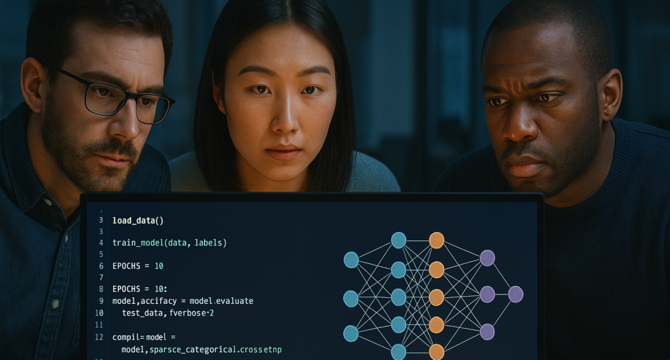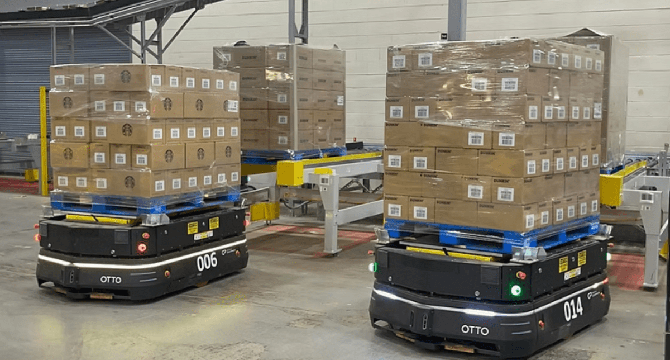Robotics News
Unite
441

Image Credit: Unite
How to Get ChatGPT to Talk Normally
- Recent research reveals that bad habits in ChatGPT and similar bots are learned from human feedback, leading to empty or misleading answers. New fine-tuning methods aim to address these habits.
- Common biases identified in language models include 'flattery', 'fluff', and 'fog', which influence response styles. A study focuses on diagnosing and mitigating these biases in LLMs.
- The biases include extra length, list structures, technical jargon, flattery, and vague generalities, impacting user preferences.
- Training data annotation by human reviewers influences these biases, with models learning and exaggerating these patterns during training.
- An academic collaboration presents a method to create synthetic examples that counter these biases during training, leading to improved model behavior.
- The study evaluates biases like length, structure, jargon, sycophancy, and vagueness, finding that models over-prefer biased responses influenced by training data.
- Fine-tuning with counterfactual data helps models align more with human preferences, reducing biases like jargon and vagueness while maintaining overall performance.
- The research highlights how biased training data impacts model behavior and shows the effectiveness of post-training methods in mitigating biases.
- The study offers insights into addressing undesirable outcomes caused by training data imbalances in language models like ChatGPT, with implications for improving model responses.
- Commercial and open models often exhibit biases in responses, with human annotators' preferences influencing the development of these biases in language models.
Read Full Article
26 Likes
Unite
9

Image Credit: Unite
Cursor AI Rockets to $9.9 Billion Valuation with Massive $900 Million Raise
- Anysphere, the company behind AI code editor Cursor, raised a massive $900 million, valuing the startup at $9.9 billion.
- Cursor, launched in 2023, combines traditional editing with an AI assistant that helps developers in code autocompletion, refactoring, bug troubleshooting, and collaboration.
- Cursor's growth has been phenomenal, with nearly a billion lines of AI-assisted code generated daily and an ARR of $500 million, doubling every two months.
- Anysphere declined a $3 billion acquisition offer from OpenAI, opting to scale independently and secure funding to fuel its growth.
- With the new funding, Anysphere plans to expand its R&D team, enhance reliability, optimize AI models, and target the enterprise segment.
- Cursor aims to evolve beyond code editing, becoming a comprehensive AI collaborator for managing software architecture, testing, and application prototyping.
- Despite a competitive market, Cursor's native-first approach distinguishes it, surpassing competitors both in adoption and revenue by mid-2025.
- The rise of 'vibe coding' signifies a shift in software development, where developers can describe problems in plain English and watch code emerge in real-time without manual construction.
- This shift positions AI as a primary creator in software development, emphasizing high-level objectives over manual line-by-line coding.
- While the AI vibe coding market is competitive, Cursor's technical prowess and user satisfaction highlight its leading position as a comprehensive AI coding environment.
Read Full Article
Like
TechCrunch
121

Image Credit: TechCrunch
Europe will have to be more Tenacious to land its first rover on the moon
- Europe faced setback as the lander carrying Tenacious, the first European-made rover to Moon, lost contact during landing attempt.
- ispace-EUROPE's mission under HAKUTO-R suffered a second failure that hit hard in Japan and Europe where ESA supported the mission.
- Tenacious was meant to collect lunar soil under a contract with NASA and transfer ownership of samples, aiming to commercialize space resources.
- ispace-EUROPE CEO mentioned it would pave the way for commercializing space resources on a larger scale and enhance global participation.
- The loss impacted the agile team behind Tenacious, which included individuals from 30 nationalities, marking a unique European achievement.
- Luxembourg's support for space initiatives contributed to ispace's endeavors, driving collaborations with terrestrial industries like Epiroc for lunar equipment.
- Luxembourg's growing space ecosystem, supported by entities like LSA and LuxIMPULSE, is boosting industry integration and market opportunities.
- Deloitte's research highlights tax incentives and aids available in Luxembourg's space sector, promoting innovation and multinational collaboration.
- Tenacious's unique design, lightweight at 5kg, showcases efficient components enabling cost-effective lunar missions.
- Aside from scientific objectives, Tenacious carried The Moonhouse sculpture symbolizing human connection and artistry, showcasing broader mission goals.
Read Full Article
7 Likes
Unite
144

Image Credit: Unite
Soham Mazumdar, Co-Founder & CEO of WisdomAI – Interview Series
- Soham Mazumdar is the Co-Founder and CEO of WisdomAI, a company focused on AI-driven solutions, with a strong background in software architecture and AI innovation.
- WisdomAI offers an AI-native business intelligence platform that integrates structured and unstructured data through its 'Knowledge Fabric,' catering to major firms like Cisco and ConocoPhillips.
- Mazumdar left Rubrik to establish WisdomAI in 2023, driven by his observation of data inefficiency in enterprises and the transformative potential of AI to bridge the gap between data availability and usability.
- WisdomAI's platform uses agentic data insights and AI agents to empower business users with real-time, context-driven insights beyond traditional BI dashboards.
- The platform ensures high semantic accuracy and data privacy by using generative AI for well-scoped queries, addressing hallucination and reliability concerns with large language models (LLMs).
- By leveraging 'vibe coding,' which integrates AI for code generation based on natural language commands, WisdomAI accelerates development, enabling early user feedback and rapid iterations.
- WisdomAI has seen rapid adoption across various industries, with notable impacts in oil and gas operations at ConocoPhillips and significant time-saving benefits in sales and finance at Descope.
- The platform challenges common BI misconceptions by providing quick, tailored data insights and overcoming delays caused by manual report generation processes and siloed information.
- WisdomAI aims to augment traditional BI tools by democratizing data access and transforming how users interact with data, ultimately increasing the adoption and effectiveness of analytics across enterprises.
- In the future, WisdomAI aims to revolutionize self-service intelligence by making data interrogation accessible to all employees, combining AI computational power with natural language interaction for proactive data insights.
Read Full Article
8 Likes
Discover more
Unite
90

Image Credit: Unite
Building Trust Into AI Is the New Baseline
- AI is rapidly expanding and requires clear boundaries to protect and empower users, especially as it becomes embedded in various aspects of life.
- Leaders in AI face the challenge of ensuring safety, integrity, and human alignment in evolving AI models to establish trustworthy AI.
- Trust is crucial as AI increasingly influences business decisions, with evident consequences of AI missteps in areas like legal cases and chatbot interactions.
- Building trust into conversational AI is essential to ensure models engage responsibly and adapt in real-time interactions.
- Guardrails, incorporating technical, procedural, and ethical safeguards, are necessary for fast development while prioritizing human safety and ethical integrity.
- Modern AI safety requires multi-dimensional approaches, including behavioral alignment and governance frameworks to ensure ethical alignment and real-time response corrections.
- AI guardrails encompass input evaluation, output refinement, and behavioral governance to prevent issues like bias, misinformation, or unsafe responses.
- In conversational AI, guardrails play a critical role in shaping tone, setting boundaries, and managing real-time interactions to maintain safety and compliance.
- Guardrails should be integrated throughout the AI development cycle, involving all roles from product managers to support teams for responsible deployment.
- Monitoring guardrail effectiveness through metrics like safety precision, intervention rates, and user sentiment is essential to ensure AI reliability and trustworthiness.
Read Full Article
5 Likes
Unite
432

Image Credit: Unite
Security Teams Are Fixing the Wrong Threats. Here’s How to Course-Correct in the Age of AI Attacks
- Cyberattacks now involve AI, leading to faster attacks like polymorphic malware and automated reconnaissance that security teams struggle to combat effectively.
- Security defenses often rely on reactive measures, such as known indicators of compromise and historical attack patterns, creating opportunities for attackers to succeed.
- Security teams are fixing the wrong issues due to the industry's reliance on compliance checklists and fragmented security tools.
- The use of risk scores like CVSS to prioritize vulnerabilities often results in patching non-exploitable issues, giving attackers room to exploit overlooked weaknesses.
- Traditional signature-based detection methods are becoming less effective against AI-generated attacks like polymorphic malware and AI-generated phishing emails.
- Regulatory pressures, such as the SEC's cybersecurity disclosure rules and the EU's DORA regulations, demand a shift towards continuous cyber risk management that most organizations are unprepared for.
- Most organizations struggle with threat prioritization, relying on static risk scoring systems that do not consider vulnerability context, leading to inefficiencies in managing cyber risk.
- A proactive approach focusing on continuous attack simulation and exploitability-driven defense is recommended to combat AI-generated attacks effectively.
- Security teams should prioritize continuous attack simulations, exploitability over severity, unified security telemetry, automated defense validation, and modern cyber risk reporting for improved security operations.
- By shifting to continuous validation and exploitability-based prioritization, organizations can enhance security operations, improve incident response, and align with regulatory demands.
Read Full Article
26 Likes
Unite
10

Image Credit: Unite
Can AI Solve the Loneliness Epidemic?
- The rise in loneliness, especially among young adults and mothers with small children, has led to a public health emergency, with significant negative impacts on physical health.
- AI has been explored as a potential solution to combat loneliness, with studies showing positive effects of interactions with AI companions in reducing feelings of isolation.
- However, there are concerns that excessive reliance on AI for social interaction could lead to further withdrawal from real-world connections, posing a risk of deepening loneliness instead of alleviating it.
- AI's impact on loneliness is intertwined with broader societal issues, such as economic disparities, with some AI applications in healthcare and education showing promise in addressing root causes of isolation.
- The success of AI in mitigating loneliness depends on inclusive design practices to ensure that marginalized communities benefit and are not left behind.
- While AI can provide some level of companionship and assistance, it lacks the essential human elements such as physical touch, shared experiences, and authentic accountability that are crucial for meaningful connections.
- AI's role in combating loneliness will require a balanced approach, leveraging technology to enhance social interactions while recognizing the irreplaceable value of human connection.
- While AI can facilitate logistical tasks and reminders, true human connections and experiences still hold unparalleled value in fostering emotional well-being and combating loneliness.
- It is essential for individuals to use AI as a tool to enhance their interactions, but ultimately prioritize real-world engagements to establish genuine relationships that go beyond what artificial intelligence can provide.
Read Full Article
Like
COSMOS
148

Image Credit: COSMOS
Astonishing 1,000-year-old Native American crop fields covers hundreds of acres
- Archaeological research published in Science reveals astonishing 1,000-year-old Native American crop fields in northern Michigan, showcasing high-level societal organization among indigenous people.
- The Sixty Islands archaeological site along the Menominee River is the most complete ancient agricultural site in the eastern US, covering 330 acres and utilized between 1000 and 1600 CE.
- Drone-based lidar technology uncovered raised fields of clustered, ridged garden beds for growing corn, beans, squash, and other plants, challenging previous estimates of agricultural scale in the region.
- The ancestral Menominee communities' farming system required extensive organization and labor, with the cultivation of corn at the northern limit of its growth range, showcasing advanced agricultural productivity.
Read Full Article
8 Likes
Unite
279

Image Credit: Unite
Smaller Deepfakes May Be the Bigger Threat
- Conversational AI tools like ChatGPT and Google Gemini are now used to create subtle deepfakes by rewriting images without face swapping.
- These subtle alterations can trick both AI detectors and humans, making it harder to distinguish real from fake online content.
- People often associate deepfakes with non-consensual AI porn and political manipulation, but subtle deepfakes can have a more enduring impact.
- Researchers created the MultiFakeVerse dataset to address subtle deepfakes, altering context without changing core identities, challenging detection systems.
- Human observers and current detection models struggle to identify these subtle manipulations, showing limitations in detecting narrative-driven edits.
- The MultiFakeVerse dataset was generated using vision language models to subtly alter images and assess perception changes across emotion, identity, and narrative.
- Detection models like CnnSpot and SIDA had challenges in identifying subtle manipulations, with improved performance after fine-tuning on the MultiFakeVerse dataset.
- Gemini-2.0-Flash was used to assess how manipulations affect viewer perception, showing shifts in emotion, identity, narrative, and ethical concerns.
- The study reveals the difficulty in detecting subtle deepfakes, emphasizing the potential long-term impact of quieter 'narrative edits'.
- As AI tools play a role in generating such content, the study suggests a need for improved detection models capable of identifying small, targeted changes.
Read Full Article
16 Likes
The Robot Report
257

Inventory robots come to Sleepy Hollow as Simbe partners with grocery chain
- Simbe Robotics Inc. partners with DeCicco & Sons, a grocery chain in New York state, to bring Simbe’s Store Intelligence platform to DeCicco’s stores in Sleepy Hollow, Eastchester, and Larchmont.
- The partnership aims to provide real-time visibility into pricing accuracy, product availability, and inventory placement to enhance operational precision and in-store execution.
- Automating inventory management allows DeCicco & Sons's team to assist customers more efficiently, complementing their vision for the future of grocery retail.
- Simbe's Tally robot and Store Intelligence platform facilitate a seamless, modern retail environment, boosting product availability, pricing accuracy, and service quality while reducing manual effort.
Read Full Article
15 Likes
The Robot Report
144

Kepler Robotics showcases K2 ‘Bumblebee’ humanoid at ICRA 2025
- Kepler Robotics introduced its latest humanoid robot, the K2 'Bumblebee,' at ICRA 2025 in Atlanta, drawing attention from global robotics experts.
- The K2 demonstrated natural gestures, autonomous mobility, and interaction with other robots, making it a high-traffic destination at the event.
- Designed for industrial use, the K2 Bumblebee features advanced technologies, 52 degrees of freedom, and onboard compute reaching 100 TOPS.
- Kepler aims for humanoid adoption in manufacturing, warehousing, logistics, and niche industries, with K2 units being trialed for real-world industrial scenarios.
Read Full Article
8 Likes
Gritdaily
405

Image Credit: Gritdaily
What AEC Taught Me About Scalable Robotics: Lessons for Business Leaders
- A business leader shares insights on how his background in Architecture, Engineering, and Construction (AEC) has influenced his work in robotics, emphasizing project execution, cost control, and schedule adherence.
- Transitioning from construction to robotics, the author found similarities in structured processes between the two industries, highlighting the importance of discipline and transparency at each project stage.
- Lessons from design-build principles in AEC are applied to robotics, advocating for early stakeholder involvement, solution-agnostic approaches, and detailed collaboration for successful outcomes.
- In automation, driving behavioral change requires thorough communication and education, mirroring risk management practices found in the construction industry.
- Automation provides flexibility for experimentation and scalability, allowing businesses to pilot new technologies with lower risks compared to traditional construction projects.
- Real-world examples demonstrate the importance of collaboration, flexibility, and early engagement in implementing automation solutions seamlessly into existing operations.
- Advice for companies venturing into automation includes starting with feasibility studies, piloting, and careful partner selection, emphasizing the need for continuous support and alignment with business goals.
- Long-term planning for automation integration is crucial, requiring considerations for facility design, workforce planning, and IT systems to stay ahead in the evolving landscape of business strategy.
- The author concludes that technology alone is not sufficient for transformation; success lies in execution, cultural alignment, and strong partnerships, highlighting the critical mindset applied in every project at Chang Robotics.
Read Full Article
24 Likes
Pymnts
148

Image Credit: Pymnts
Amazon Aims to Use AI to Help Robots Understand Natural Language Commands
- Amazon is focusing on AI projects related to robots, last-mile delivery, and supply chain optimization.
- The company's AI efforts include developing a foundation model framework for robots to understand natural language commands and act autonomously.
- Amazon is also working on initiatives like Wellspring for improving delivery precision using generative AI, and SCOT for enhancing supply chain optimization.
- Overall, Amazon is leveraging AI to enhance various aspects of its operations, from improving delivery services to forecasting customer demand.
Read Full Article
8 Likes
The Robot Report
442

samos PRO MOTION Controller wins award for Wieland Electric
- Wieland Electric's samos PRO MOTION Controller was named the Gold winner in the Control Systems category of the Plant Engineering 2025 Product of the Year awards program.
- The award recognizes the controller's innovation, performance, and contribution to advancing industrial automation and safety, offering real-time capabilities for robotics, packaging, and material handling systems.
- samos PRO MOTION integrates advanced motion functionality with intuitive programming via samos PLAN6 software, reducing the need for additional modules and freeing up space in control cabinets.
- The compact controller supports safe standstill monitoring, features industrial Ethernet protocols integration, withstands temperatures from -25°C to +65°C, and offers increased safety through redundancy and shaft break detection.
Read Full Article
26 Likes
TechCrunch
194

Image Credit: TechCrunch
Hugging Face says its new robotics model is so efficient it can run on a MacBook
- AI dev platform Hugging Face released an open AI model for robotics called SmolVLA, trained on community-shared datasets to outperform larger models in virtual and real-world environments.
- SmolVLA, with 450 million parameters, is designed to democratize access to vision-language-action models and accelerate research in generalist robotic agents.
- Hugging Face's SmolVLA can run on a single consumer GPU or even a MacBook, offering a lightweight yet capable model for robotics tasks.
- In addition to Hugging Face, other players in the open robotics realm include Nvidia, K-Scale Labs, Dyna Robotics, Physical Intelligence, and RLWRLD.
Read Full Article
11 Likes
For uninterrupted reading, download the app